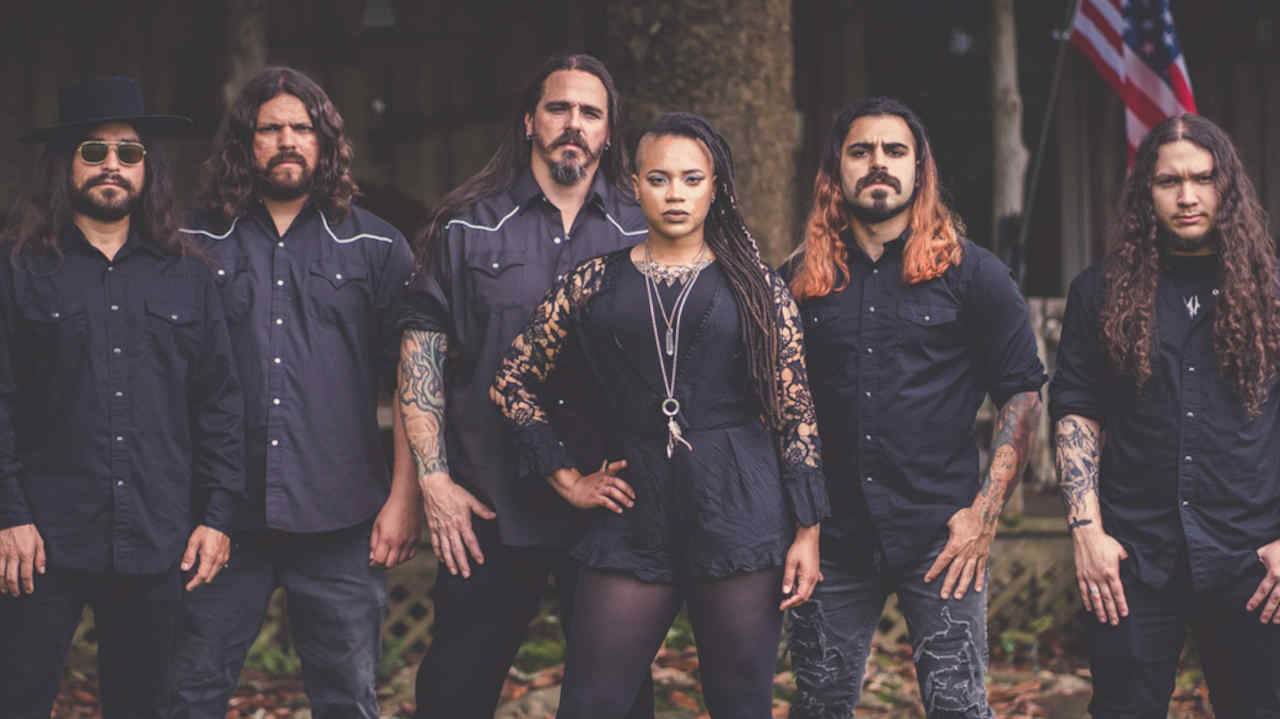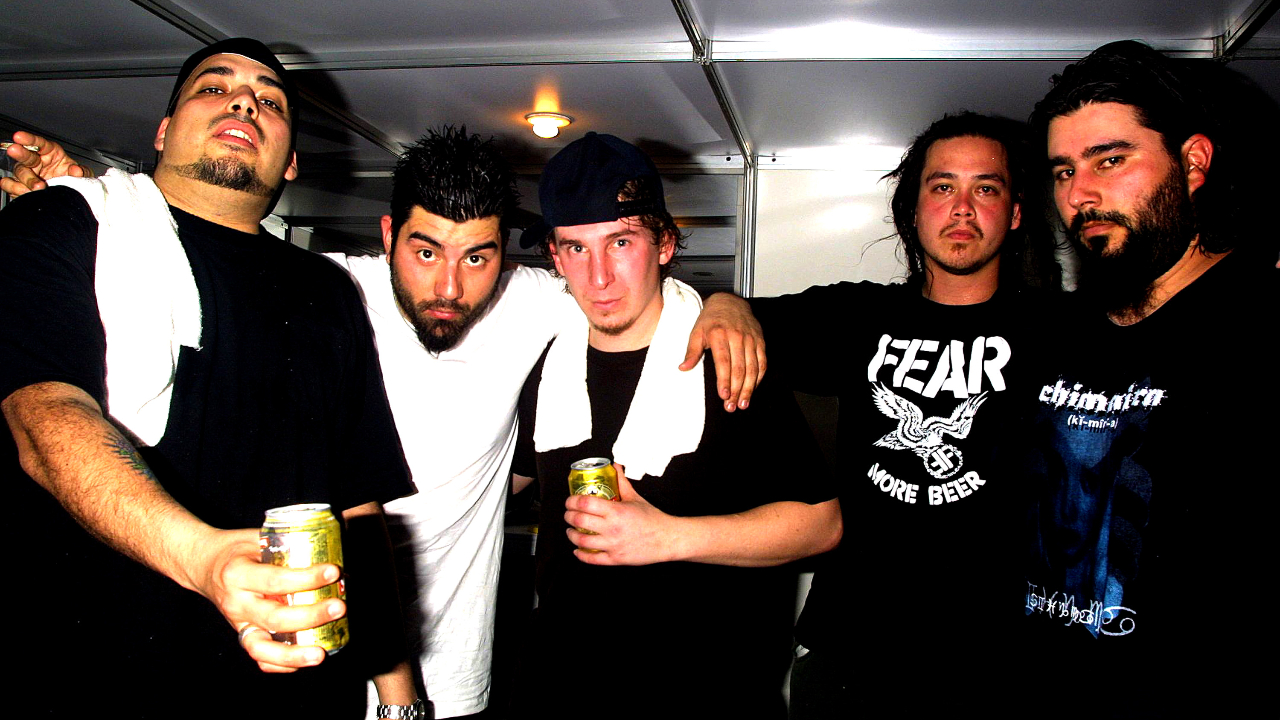How Oceans Of Slumber turned childhood trauma and religious cults into a prog metal epic
Oceans Of Slumber's new album Starlight And Ash explores the dark side of America's Deep South

Select the newsletters you’d like to receive. Then, add your email to sign up.
You are now subscribed
Your newsletter sign-up was successful
Want to add more newsletters?

Every Friday
Louder
Louder’s weekly newsletter is jam-packed with the team’s personal highlights from the last seven days, including features, breaking news, reviews and tons of juicy exclusives from the world of alternative music.

Every Friday
Classic Rock
The Classic Rock newsletter is an essential read for the discerning rock fan. Every week we bring you the news, reviews and the very best features and interviews from our extensive archive. Written by rock fans for rock fans.

Every Friday
Metal Hammer
For the last four decades Metal Hammer has been the world’s greatest metal magazine. Created by metalheads for metalheads, ‘Hammer takes you behind the scenes, closer to the action, and nearer to the bands that you love the most.

Every Friday
Prog
The Prog newsletter brings you the very best of Prog Magazine and our website, every Friday. We'll deliver you the very latest news from the Prog universe, informative features and archive material from Prog’s impressive vault.
The dark side of America’s Deep South has long been a source of inspiration for storytellers, from writers such as Flannery O’Connor to TV shows like True Detective. Exploring race, religious fanaticism, magic, the supernatural and the grotesque, ‘Southern Gothic’ stories reject the old romantic South and expose its underbelly, often with horrifying results.
Now, Texan band Oceans Of Slumber are presenting their take on Southern Gothic with their fifth album, Starlight And Ash. “There’s a charm and a draw to this place,” Oceans Of Slumber drummer Dobber Beverly says of the South. “And no matter how bad it gets here – and it can get bad – people still want to be here. There’s some kind of magic, especially down here on the coast [he’s in Houston, Texas].”
“There’s such a mix of music that you’re exposed to down here pretty early on,” adds Oceans vocalist Cammie Beverly. “There’s a ton of Southern Baptist churches, Southern gospel, you have blues, jazz, country, folk – there’s a bit of everything. And then you add on the heat, you add on the culture, and it kind of infuses in a magical way.”
Dobber started Oceans Of Slumber back in 2011, and Cammie joined in 2014. Since then the pair have been leading the band. Cammie’s powerful voice and charismatic presence was the missing piece for Oceans, taking their intoxicating mix of heavy prog, goth and doom to a whole new level. “Cammie is very powerfully emotive to the point where, to me, she’s untouchable,” Dobber says.
As well as being bandmates, Cammie and Dobber are a couple, and they got married last December. “I loved and respected Cammie as the musical entity that she is far before there was intimate love between us,” Dobber confides in his Texan drawl. “To me, it’s amazing to be in a band with someone who I have that muchrespect for as an artist, regardless of the fact we’re married.”
When asked what it’s like making music with your partner, Cammie says, “Making a song together is like another love language to me.” Both Cammie and Dobber were raised in the American South. Their experiences shaped the adults they would become, and the music they would make.
For Cammie, religion was an overpowering presence in her childhood. Her father was a member of an organisation called the Institute Of Divine Metaphysical Research (IDMR), and her family attended services until she was around nine years old.
Sign up below to get the latest from Metal Hammer, plus exclusive special offers, direct to your inbox!
“It was a really eye-opening look into how intense religion can be,” Cammie says. “I’m confident to say that I feel like it was a cult. Not in the sense that maybe people think, like you’re living in the middle of nowhere in a commune. It was a very central, urbanised church, but it had pretty radical outlooks. The founder was believed to have direct communication with God, telepathy and healing powers, and there was a ton of Hell, hellfire and punishment, with the Devil always whispering in your ear.”
It wasn’t all bad, though… “The music [in the IDMR] was really popping for its time!” Cammie laughs. “There were keyboards, tambourine, guitars, and such passionate, strong singing.”
When Cammie was around nine, her mother became a Jehovah’s Witness, and this split the family home life in two. Cammie explains that while Jehovah’s Witnesses were “gentler and kinder” than the IDMR, they were also isolated from the outside world.
“They don’t associate with anyone who’s not a Witness, everybody stays to themselves, and you feel like that’s all they talk about,” she says. “My parents would argue a lot about religion,” Cammie continues, “which is such a tiresome debate because it canjust go in circles. It was stressful; there was a lot of headbutting.”

At 15, Cammie and her older brother were given the choice of whether they wanted to continue going to either church. For her, the answer was obvious. “I turned my back, stomped it out and ran away with a fever!” Cammie laughs. “It’s still ongoing with me and my mom,” she adds. Her father has since passed away. “I’ve come to a place where I accept her faith, and I try to make her understand it’s just not for me."
“Growing up in a religious household, things can be so narrow-minded and it narrows your outlook. You get this sense that everybody else is the enemy and everybody else is so different, but then you get away from it and see that it’s not the case. The world has a lot more hope and love and compassion to give than I feel like any one religion makes you feel.”
She adds that, in the South, you don’t have to look far to find “some religious zealot preaching their hot take on the Bible”. “You’ve got a lot of space, a lot of ignorance, and a lot of tradition [in the South], and they just all intersect,” she says. “Driving around here, it’s billboard after billboard of ‘Be Saved’ and ‘Jesus Heals’.”
Dobber, meanwhile, grew up in a small city called Shepherd, Texas, in what he describes as “pretty much a single parent” situation. His mum left when he was nine or 10, and his father, an engineer, worked out of town a lot. Dobber had siblings but they were older and lived out of state, and he describes himself as a “latchkey kid” – meaning he essentially raised himself from a very young age.
“I was born in ’78, and by the time the late 80s kicked in, that was an era where things had shifted so much socially – folks were becoming single parents, there were more dual working households, and there was more responsibility laid on the kids,” Dobber explains.
He’s quick to add that his father is a “brilliant man”, and that they have a strong relationship to this day – he and Cammie got married on his father’s land. “I realised that the confines of an area like that would either bury me, or ruin my life,” Dobber says. “I was like, I gotta get out, ’cos I want to do something else for myself.”
One particular night from childhood continues to stick out in his mind. “One night when I was about 10 or 11, my dad didn’t come home,” Dobber remembers. “He had stayed out all night at a company party or something. This was all before cellphones, so I was freaking out. The road in front of my house was called Red Road, and I remember running down that road and the streetlights, just trying to find somebody to give me answers.”
This memory inspired the song Red Forest Roads on Oceans’ new album, Starlight And Ash. It’s a haunting, darkly atmospheric track, punctuated by Cammie’s soulful cries. The whole album was in part inspired by childhood memories like these – not just Dobber and Cammie’s, but the entire band’s.
“Everyone has that formative experience or that tragic experience that they remember from childhood, and we wanted to turn them into songs,” Cammie explains, adding that it was her experiences with religion in particular that inspired the album. “But we didn’t want to make it so personal. So it’s not like, this is Cammie’s song, Dobber’s song, Semir’s [Ozerkan, bassist] song.”
Instead, all their experiences and memories seep through the album, making it more universal. “It jumps in time, inplace and perspective,” Cammie explains. “It can be individual, or a general idea – and they all play into these feelings or experiences we had growing up.”
Less heavy than some of their past albums, Starlight And Ash is richly cinematic, infused with Southern atmosphere, and has a darkness that’s as intense as the locality that inspired it. It’s set in a fictional, coastal Southern town that revolves around a lighthouse. As Cammie explains, the people of the town treat the lighthouse as if it were a deity: “They feel like the lighthouse is what makes or breaks people’s return, so it becomes this thing that they worship.”
The idea of the town was partly influenced by Stephen King’s Castle Rock: a fictional town in the legendary novelist’s home state of Maine that features in a number of his stories. “Here’s this prolific writer, who uses the same town to make all his stories come to life,” Cammie explains, “and that’s kind of what we wanted to do. It’s so much more massive than one book, and I think that’s what I liked about it. It’s this town that holds all these stories.”
“Folks really get the run of the gamut down in the South,” Dobber says. “If you were to ask the vast majority of people who live down here what kind of atrocity or trauma or terrible things happened to them, it’s a pretty good laundry list. I realised that things I went through in my story aren’t so unique. Regardless of faith or outlook, at the end of the day we’re still human, and we still all act exactly the same. We suffer the same, feel the same, hate the same, love the same."
“This is what the new Southern Gothic is,” he concludes. “It is suffering and love, copious amounts of both.”
Starlight And Ash is out now via Century Media
Hannah May Kilroy has been writing about music professionally for over a decade, covering everything from extreme metal to country. She was deputy editor at Prog magazine for over five years, and previously worked on the editorial teams at Terrorizer and Kerrang!. She currently works as the production editor for The Art Newspaper, and also writes for the Guardian, Classic Rock and Metal Hammer.

